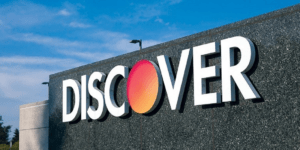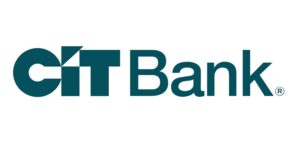Chase Payment Solutions and PayPal consistently rank in the top five when it comes to popular payment processors. Let’s take a close look at how they compare, so you can decide which service is the better solution for your business.
As you can tell, Chase Payment Solutions is a subsidiary of the large banking company JP Morgan Chase. They offer payment processing for businesses of all shapes and sizes. From professional services to retail and restaurants, they’ve got you covered.
Using a PayPal Business account and PayPal Here app, merchants can accept debit, credit, and PayPal payments online, in store and on the go. It’s one of the few processors that allows individuals to accept payments. So PayPal is quite popular among freelancers, consultants and the like.
| PROMOTIONAL LINK | LOAN DETAILS | REVIEW |
| Intuit Quickbooks Payments Best for QuickBooks users. | In-Person Payments: 2.40% & 25 cents per transaction Online Invoices: 2.90% + 25 cents per transaction | Review |
| Square Best low-fee mobile card processor. | In-Person Payments: 2.75% per transaction Online Invoices: 2.9% + 30 cents per transaction | Review |
Chase Payment Solutions vs. PayPal Quick Facts
| CARD PROCESSOR | CHASE PAYMENT SOLUTIONS | PAYPAL |
| Type Of Provider | Direct processor | Third-party processor |
| Type Of Processing Fees | Tiered or interchange-plus | Interchange-plus |
| Contract & ETF | Month-to-month, no ETF | No contract, no ETF |
Products & Services
Not only are they payment processors, both PayPal and Chase Payment Solutions provide a wide range of feature and tools for merchants. Here’s a list of what each processor offers:
CHASE PAYMENT SOLUTIONS
- Merchant accounts
- Credit card terminals
- Payment gateway
- Virtual terminal
- Mobile processing
- International payments
- Line of credit
- Business credit cards
PAYPAL
- Online payments
- Card readers
- Payment gateway
- Virtual terminal
- Mobile processing
- Online invoicing & recurring billing
- Developer tools
- POS system integration
- Short-term loan service
- Marketing solutions
Other Factors To Consider
Chase Payment Solutions is a direct processor while PayPal is a third-party process. But, what is the difference?
Direct processors offer the whole package, and this means the ability to manage your merchant account AND process your transactions. If your account were to freeze or charge back, you will only need to deal with multiple companies instead of having to deal with multiple.
Third-party processors, on the other hand, don’t require you to have your own merchant account. Instead, the processor opens a sub-account for you, along with other merchants, under its existing merchant account.
Although it is easy to set up and it’s quick, third-party processing comes with a higher rick for fraud. So customers of this method should have a higher level of caution when it comes to suspicious transaction activity. Unfortunately, that translates into more account holds and even account termination.
In summary, for established or growing merchants with high transaction volumes, you’ll want the stability a direct processor – like Chase Payment Solutions – can provide. For those that process lower volumes, are seasonal merchants or just starting up, the simplicity of a third-party processor – like PayPal – may be more ideal.
Let’s have a look at how transaction rates compare for Chase Payment Solutions and PayPal:
| CARD PROCESSOR | CHASE PAYMENT SOLUTIONS | PAYPAL |
| Swiped Transactions (per transaction) |
2.6% + $0.10 | 2.7% |
| Online Transactions (per transaction) |
2.9% + $0.25 | 2.9% + $0.30 (domestic accounts) 4.4% + fixed fee* (international accounts) |
Through Chase Payment Solutions, there is some wiggle room in terms of their processing rates. As mentioned above, if you are a large volume merchant, you might be able to get pricing discounts. Keep in mind that these volume discounts aren’t automatic, so you might need to do some negotiating. Unfortunately, PayPal’s rates aren’t negotiable.
 |
 |
Bottom Line
Chase Payment Solutions is a great choice if you’re a medium to large business that needs a payment processor which can handle large transaction volumes. With your larger volume of sales, you might be able to negotiate better pricing for your needs.
However, PayPal, is a great choice for new, seasonal or low-volume merchants. Although not as stable as Chase Payment Solutions, you will have everything you need to accept payments online or on the go.




Leave a Reply